The importance of addressing trauma in addiction recovery
Exploring the Critical Role of Trauma in Overcoming Addiction
Introduction
The battle against addiction is complex, often fraught with many underlying challenges, one of which is trauma. Trauma plays a substantial role in both the emergence and perpetuation of substance use disorders. For effective addiction recovery, it is imperative to understand and address the impact of trauma, as untreated emotional or psychological injuries can significantly impede the recovery process. This article delves into the intricate relationship between trauma and addiction, emphasizing the importance of integrating trauma-informed care into addiction treatment to promote holistic healing.
Understanding the Trauma-Addiction Connection
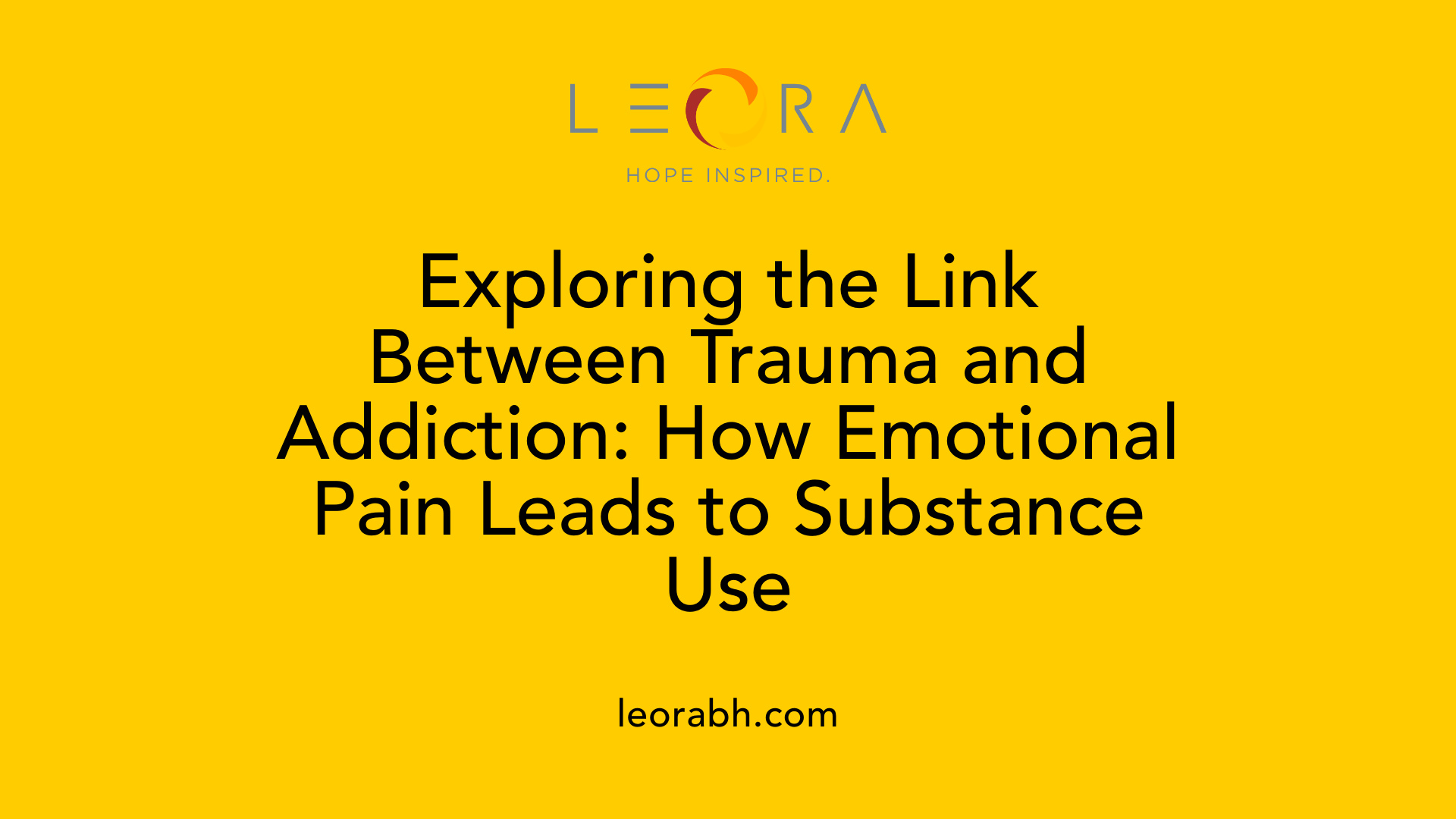
How does trauma influence addiction?
Trauma can significantly influence addiction as individuals often turn to substances like drugs or alcohol to cope with the emotional pain resulting from adverse experiences. For instance, childhood trauma, including physical, emotional, or sexual abuse, predisposes individuals to substance use disorders later in life.
The cycle of addiction and trauma is particularly pronounced among those with post-traumatic stress disorder (PTSD), as they may self-medicate to manage overwhelming symptoms. Studies have shown that approximately 65% of individuals with substance use disorders also suffer from PTSD, demonstrating the intricate connection between these conditions. Trauma can disrupt brain chemistry and emotional regulation, leading to increased cravings and reliance on substances as a coping mechanism.
What is the prevalence of trauma in individuals with addiction?
The prevalence of trauma in individuals facing addiction is alarmingly high. Research indicates that up to 75% of those undergoing treatment for substance use disorders have a history of trauma. Adverse childhood experiences (ACEs) contribute significantly to the risk of developing addiction and are often overlooked in standard treatment protocols.
Only about 19.7% of American outpatient substance abuse programs reliably offer trauma services, highlighting a concerning gap in care. This inadequacy emphasizes the necessity for trauma-informed care within addiction recovery, which integrates the understanding and treatment of trauma with conventional substance abuse therapies to enhance recovery outcomes and reduce relapse rates.
The Impact of Unresolved Trauma on Addiction Recovery
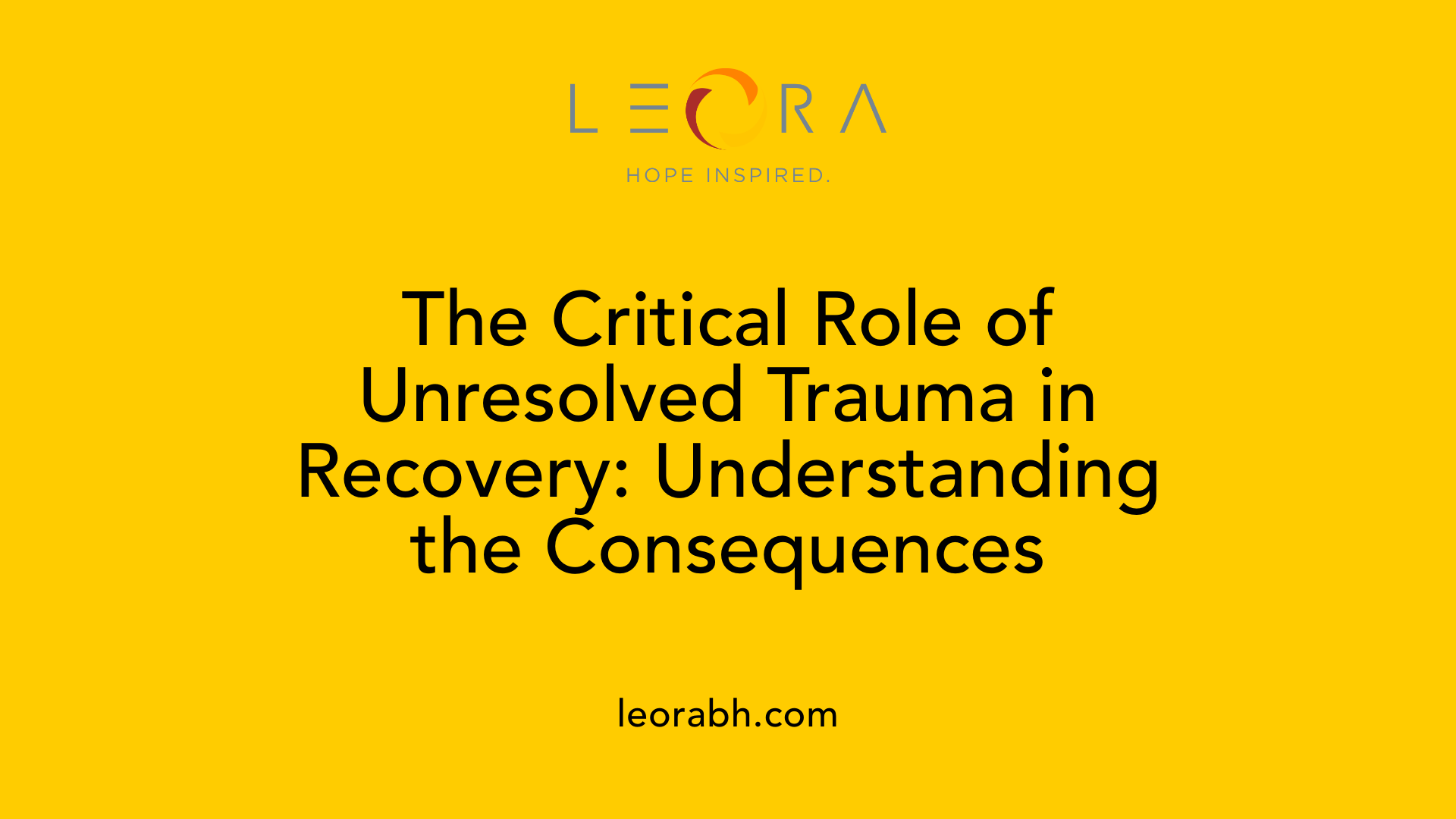
Effects of Unresolved Trauma
Unresolved trauma significantly hampers addiction recovery efforts by influencing an individual's mental, emotional, and physical health. Trauma can disrupt brain chemistry, leading to challenges in emotional regulation and increased susceptibility to substance use disorders. Symptoms such as hypervigilance, flashbacks, and emotional numbness often drive individuals toward substances as a form of self-medication, perpetuating a damaging cycle.
Furthermore, childhood trauma can profoundly impact brain development, increasing the risk of developing addiction later in life. Research shows that individuals with four or more experiences of childhood trauma are much more likely to develop alcohol and substance use disorders. The relationship between post-traumatic stress disorder (PTSD) and addiction further complicates recovery for many, with approximately 65% of those with substance use disorders also suffering from PTSD.
Importance of Addressing Past Trauma
Addressing past trauma is essential for effectively treating addiction and promoting long-term recovery. Therapeutic approaches like Cognitive Behavioral Therapy (CBT) and Eye Movement Desensitization and Reprocessing (EMDR) help individuals process traumatic experiences, alleviating emotional pain and reducing cravings for substances.
The integration of trauma-informed care in addiction treatment fosters a supportive environment that prioritizes safety and empowerment, which can lead to better treatment outcomes. Studies reveal that clients receiving trauma-informed care demonstrate higher engagement and retention rates in treatment programs. Without adequately addressing the trauma, the likelihood of relapse increases, underscoring the critical nature of comprehensive, trauma-sensitive approaches in recovery journeys.
The Benefits of Trauma-Informed Care in Addiction Treatment
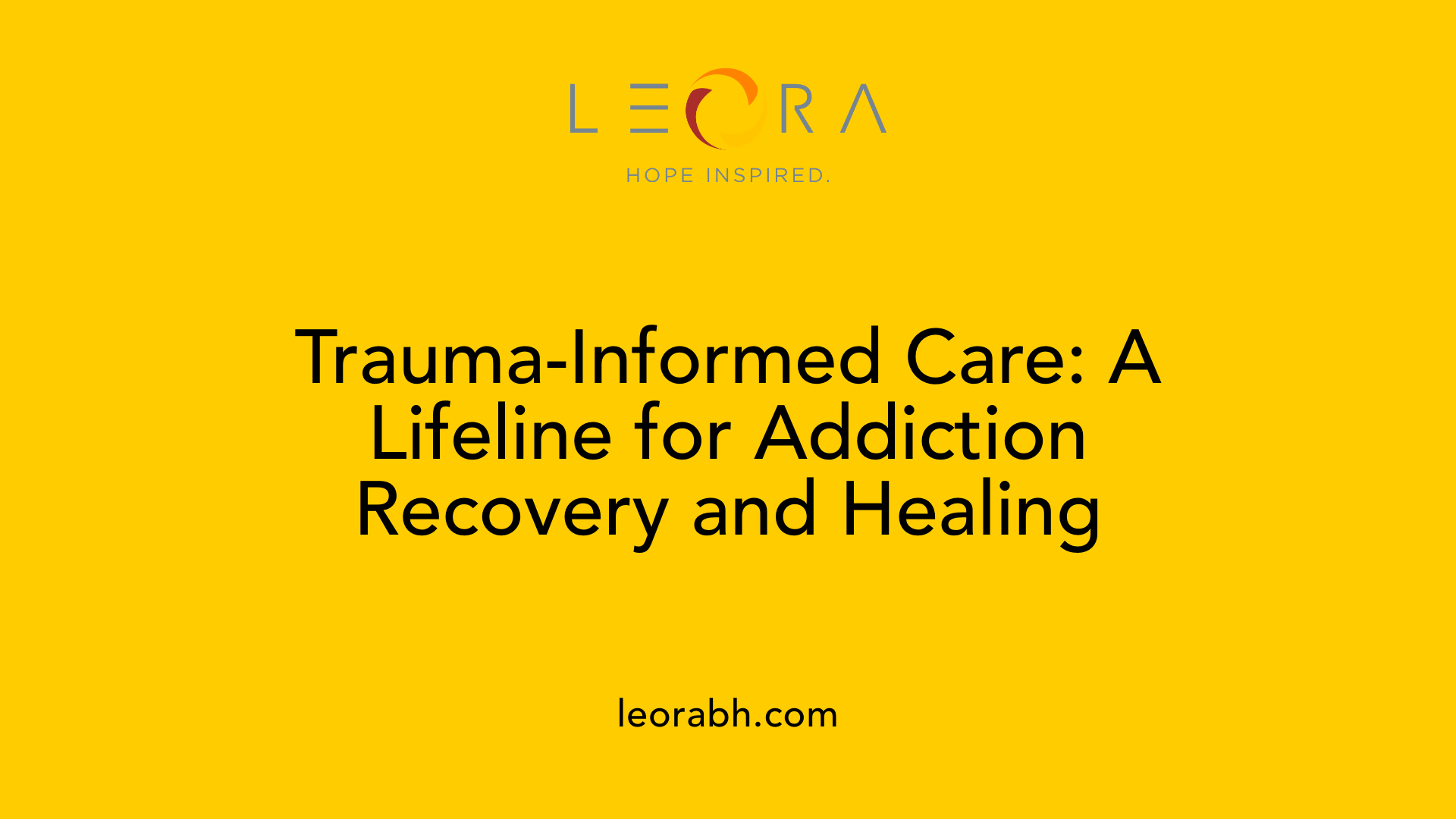
Principles of Trauma-Informed Care
Trauma-informed care (TIC) is centered around understanding the impact of trauma on individuals. This approach involves key principles such as:
- Safety: Creating an environment that feels secure for clients.
- Trustworthiness: Building trust through transparency in processes.
- Empowerment: Encouraging clients to have a voice in their treatment journey.
- Collaboration: Involving clients in their care and decision-making.
- Cultural, Historical, and Gender Considerations: Recognizing the factors that influence clients' experiences and responses to trauma.
Importance in Addiction Treatment
Integrating trauma-informed care into the treatment of substance use disorders is crucial because many individuals seeking treatment have experienced significant trauma. Approximately 75% of clients with substance misuse problems have a history of traumatic events. This comprehensive approach recognizes that trauma can severely affect an individual's capacity to engage in care and can influence outcomes in recovery.
In addition, trauma-informed care facilitates effective dual-diagnosis treatment, addressing not only substance use disorders but also co-occurring mental health issues such as PTSD, which is prevalent in many clients. By focusing on both the trauma and the addiction, TIC helps reduce relapse rates and enhances overall quality of life for individuals in recovery.
Overall, trauma-informed care creates a supportive atmosphere that promotes safety, empowerment, and trust, essential elements in fostering long-term healing and resilience.
Exploring Therapeutic Approaches for Trauma and Addiction
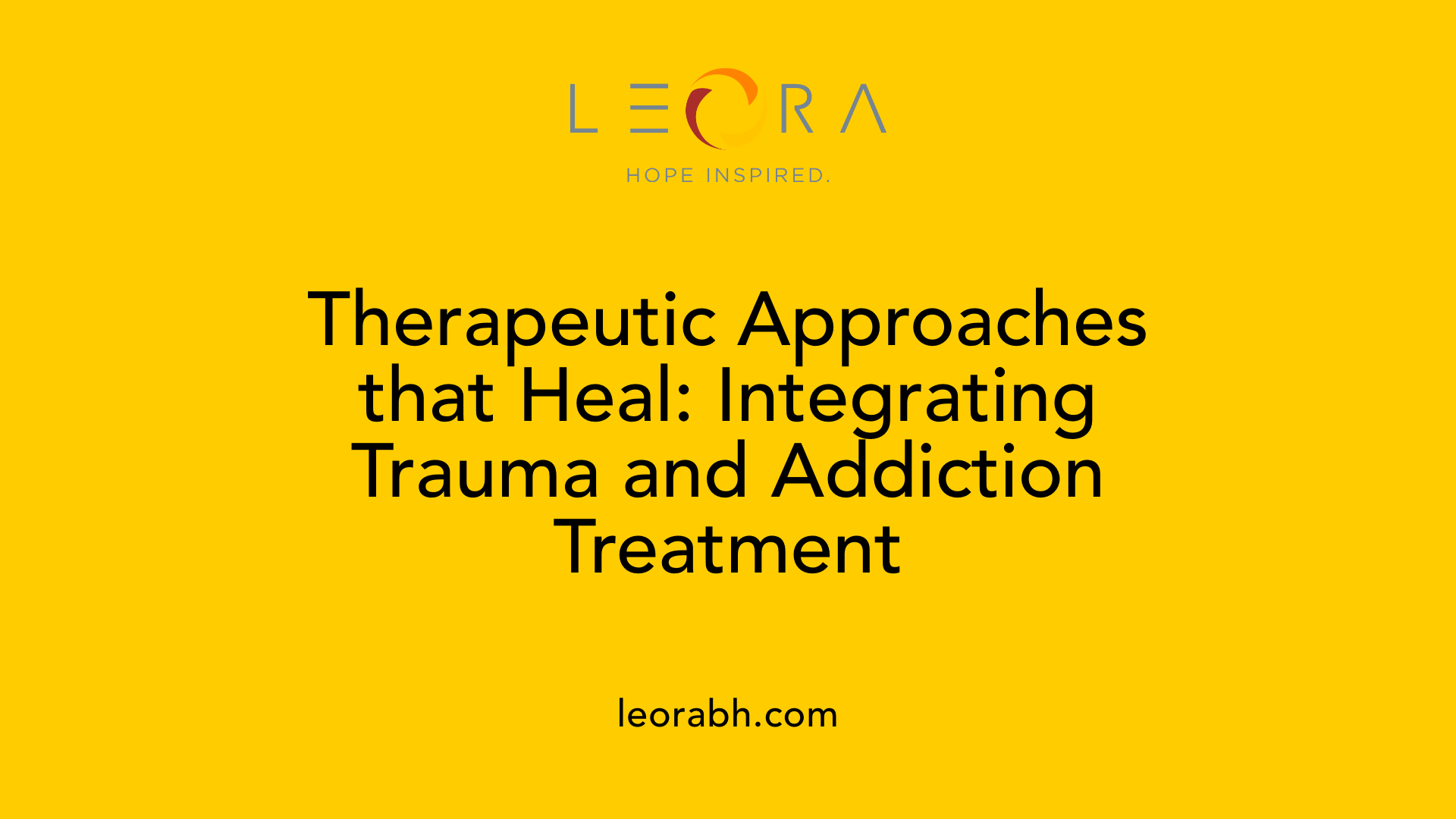
Effective therapies for trauma and addiction
Various therapeutic approaches are designed to address both trauma and addiction concurrently, recognizing their intertwined nature. Key methods include:
- Cognitive Behavioral Therapy (CBT): This therapy focuses on identifying and challenging negative thought patterns related to trauma and addiction, empowering clients to develop healthier coping mechanisms.
- Eye Movement Desensitization and Reprocessing (EMDR): EMDR assists in processing distressing memories associated with trauma, which can alleviate symptoms and reduce reliance on substances.
- Dialectical Behavioral Therapy (DBT): DBT teaches coping strategies for managing emotions and improves interpersonal effectiveness, essential for those navigating the complexities of addiction and trauma.
- Seeking Safety: This integrative approach combines coping skills with trauma-specific strategies, helping clients establish safety in their recovery journey.
Benefits of specific therapeutic frameworks
The integration of trauma-informed care in addiction treatment presents several advantages:
- Holistic healing: Treatments like mindfulness-based therapy and expressive therapies (art, music) foster overall well-being, addressing both mental health and emotional regulation.
- Reduced re-traumatization: Creating a safe and empathetic environment minimizes the risk of re-traumatizing clients, facilitating more effective healing.
- Improved treatment outcomes: Individuals receiving trauma-informed care experience higher engagement and retention rates in treatment programs, leading to more favorable recovery results.
- Strengthened support networks: Family therapy and group sessions enhance community support, vital for lasting recovery and resilience.
These therapeutic approaches are critical for breaking the cycle of addiction and trauma, ensuring individuals receive comprehensive care tailored to their needs.
Mechanisms Behind Trauma-Induced Addiction
Biological and Psychological Mechanisms
Traumatic experiences can lead to significant alterations in brain chemistry, impacting emotional regulation and creating pathways toward addiction. High levels of stress hormones associated with trauma can disrupt the brain's reward system, increasing susceptibility to substance use disorders. Additionally, unresolved trauma may impair cognitive functions, leading individuals to seek immediate relief through substances.
The psychological mechanisms are equally compelling. Many individuals who suffer from trauma often engage in self-medication as a coping strategy to numb emotional pain associated with their experiences. This behavior is particularly pronounced in cases involving childhood trauma, where the long-lasting effects can predispose an individual to substance use disorders.
Stress Response and Substance Use
The stress response is a critical factor in the relationship between trauma and addiction. When faced with traumatic events, individuals may experience hypervigilance, anxiety, or PTSD symptoms, prompting them to use substances as a means to alleviate distress. Over time, this coping mechanism can evolve into dependence, perpetuating a cycle of addiction.
Understanding these mechanisms is pivotal for developing effective treatment strategies. Interventions that focus on addressing both trauma and substance use create a dual pathway for recovery, significantly improving outcomes. For example, evidence-based therapies like Cognitive Behavioral Therapy (CBT) and Eye Movement Desensitization and Reprocessing (EMDR) can aid in processing traumatic memories while reducing the allure of substances as a coping mechanism.
Implementing Trauma-Informed Practices in Recovery Settings
Strategies for Care Providers
Trauma-informed care (TIC) in addiction recovery focuses on understanding how trauma impacts individuals and subsequently shaping treatment practices to meet their specific needs. Here are some effective strategies that care providers can implement:
- Establish Safety and Trust: Create an environment where clients feel physically and emotionally safe. Ensure clear guidelines are in place to foster a sense of security.
- Empower Clients: Allow individuals to take an active role in their treatment decisions. Empowerment enhances their sense of control over their recovery journey.
- Build Support Networks: Encourage clients to connect with family, friends, and support groups. A robust support system significantly bolsters resilience and aids recovery.
- Utilize Evidence-Based Therapies: Incorporate trauma-specific therapies such as Cognitive Behavioral Therapy (CBT) and Eye Movement Desensitization and Reprocessing (EMDR) alongside traditional addiction treatments.
Creating Supportive Environments
Creating supportive environments is crucial for effective trauma-informed care. This involves:
- Non-Judgmental Approaches: Foster an atmosphere of understanding and acceptance. Clients should feel safe to share their experiences without fear of judgment.
- Addressing Individual Trauma Histories: Tailor treatment approaches according to each client's unique trauma background to avoid retraumatization and enhance treatment effectiveness.
- Incorporating Holistic Therapies: Integrate holistic approaches such as mindfulness, yoga, and art therapy to complement traditional methods, aiding in emotional regulation and overall well-being.
By prioritizing these strategies and creating supportive environments, addiction care providers can significantly enhance the chances of successful recovery for trauma survivors.
Theoretical Frameworks Supporting Trauma Intervention in Recovery
Research Evidence
Numerous studies emphasize the connection between trauma and addiction, revealing that unresolved trauma often leads individuals to engage in substance use as a form of self-medication. For instance, the self-medication hypothesis suggests that trauma survivors might turn to drugs or alcohol to alleviate distressing symptoms associated with their experiences. Research indicates that about 59% of young people with PTSD also struggle with substance use disorders, highlighting the strong link between these conditions.
Moreover, trauma-informed care has significantly improved treatment outcomes. Evidence shows that integrating trauma services into substance abuse treatment enhances retention rates and positive results, particularly among women, thus promoting holistic recovery strategies that consider emotional and psychological wounds.
Importance of Addressing Trauma
Addressing trauma is paramount in the recovery journey. Without recognizing and treating underlying trauma, individuals may face higher risks of relapse, as heavy emotions often surface post-treatment. Trauma-informed treatment creates a supportive environment, reducing the risk of re-traumatization and allowing clients to feel safe sharing their experiences.
By employing therapeutic approaches such as Cognitive Behavioral Therapy (CBT) and Eye Movement Desensitization and Reprocessing (EMDR), recovery programs can effectively assist individuals in processing traumatic memories, improving their ability to cope and thereby breaking the cycle of addiction.
Holistic and Practical Strategies for Addressing Trauma in Recovery
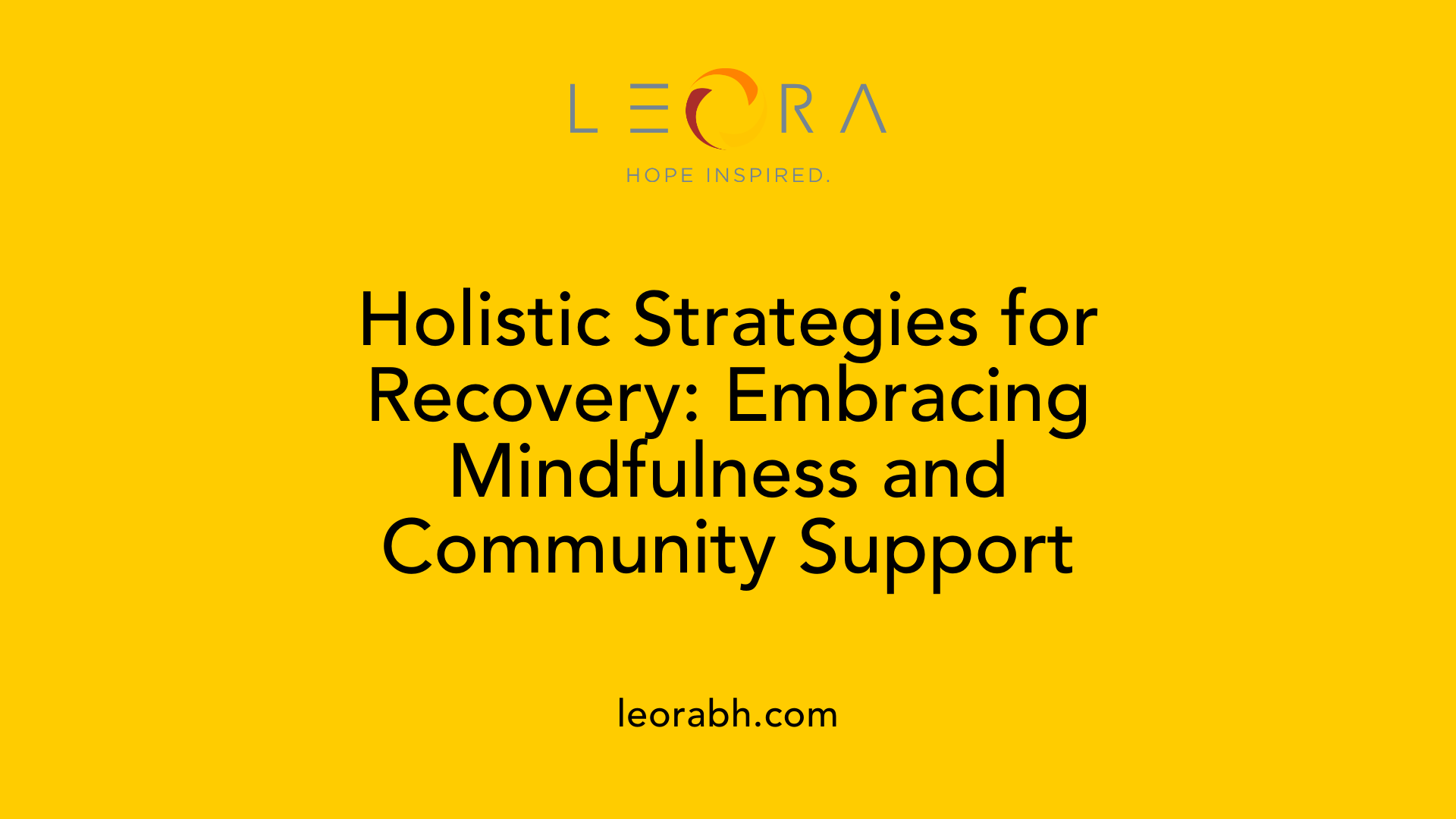
Mindfulness, Yoga, and Holistic Methods
Incorporating mindfulness and yoga into recovery has proven beneficial for addressing trauma. These holistic methods promote emotional regulation and provide techniques to manage stress and anxiety. Mindfulness practices help individuals become more aware of their thoughts and feelings, creating space to process trauma without resorting to substances.
Yoga offers a physical outlet that connects the body and mind, fostering relaxation and resilience. Studies suggest that regular practice can reduce symptoms associated with PTSD, improve mood, and enhance overall well-being, making it a crucial component of trauma-informed care.
Community Engagement and Support Groups
Building a strong support network is essential in trauma recovery. Engaging with support groups allows individuals to share their experiences and foster connections with others who understand their struggles. This sense of community combats feelings of isolation often experienced by those dealing with addiction and trauma.
Support groups provide a safe space for sharing, rebuilding trust, and receiving encouragement during recovery. Such communal healing can be instrumental in breaking the cycle of addiction, as members empower each other to seek healthier coping strategies and navigate their emotional challenges together.
Together, these holistic and practical strategies reinforce the importance of addressing trauma in addiction recovery, enhancing emotional resilience and preventing relapse.
Conclusion
Addressing trauma is a vital component in the path to addiction recovery. Unresolved traumatic experiences can significantly hinder recovery efforts, often creating a cycle of dependency that is difficult to break. By integrating trauma-informed care and effective therapeutic interventions, individuals can experience a healing process that not only targets addiction but also the deeply rooted trauma that fuels it. Understanding and implementing this dual approach holds the promise of breaking the cycle of addiction and fostering a sustainable recovery, paving the way for healthier lives and communities.
References
- Understanding Trauma and Addiction - Green Hill Recovery
- Addressing Trauma in Substance Abuse Treatment
- Why Healing from Trauma is Important to Recovery
- Trauma-Informed Care for Substance Abuse Counseling
- Understanding the Connection Between Trauma and Addiction
- Addressing trauma in mental health and substance use treatment
- Addressing Trauma In Addiction Recovery At Transformations Care
- Understanding the Role of Trauma Therapy in Addiction Recovery
Find Your Inner Light
Related Articles
Contact Us
Leora Behavioral Health offers a comprehensive addiction treatment programs to help you get your life back on track.
Our trained professionals will work with you to develop a personalized treatment plan that meets your unique needs. If you or someone you know is struggling with addiction, reach out to Leora Behavioral Health today.


.svg)





.svg)
.svg)
.svg)
.svg)